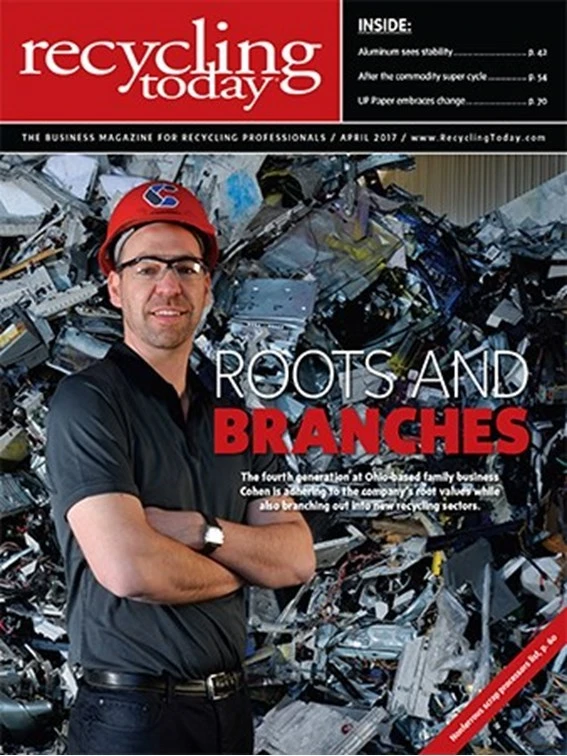Disruptive technology is a term most often applied to new technologies or new applications for technology that quickly can send established companies or business models reeling.

Basic materials and recycling markets have by no means been immune to disruptive technologies, as manufacturers and recyclers of several types of paper can testify.
Recyclers in several other sectors also are facing changes brought about by technology advances, including the rapidly changing nature of what is collected by electronics recyclers. In the metals sector, the potential seems to exist for 3D printing to replace smaller batch foundry work.
In 2016 and 2017, another potential form of disruption has been taking shape on the policy front rather than on the technology front. In mid-2016, voters in the United Kingdom chose to leave a 28-nation consortium that started as a common trading market. That was followed by the successful campaign of a presidential candidate in the United States who struck a chord with many voters by proclaiming that America had been on the wrong end of many of its global trade treaties.
Since taking office in January 2017, President Donald J. Trump has withdrawn the United States from one pending trade agreement, the Trans-Pacific Partnership (TPP), and stated his intention to bring Canada and Mexico to the table to renegotiate the North American Free Trade Agreement (NAFTA).
What all this will mean for recyclers and the basic materials producers that consume their products is still uncertain.
A majority of recyclers contacted for our story on the industry’s current conditions (“Floors and Ceilings”) expressed opposition to the United States closing itself off from global markets.
Veteran recyclers certainly can remember a time when a higher percentage of their volumes stayed on the North American continent. The chances are good that savvy recyclers will adapt quickly to supply chains that change directions, even if it entails new freight considerations.
However, most recyclers express an appreciation for a global market, based ideally on “free and fair trade,” as industry associations say, because it provides the greatest number of bidders for their materials. Others also will confide that it reduces the chances of forms of collusion that can take shape in a smaller market.
Critics of the skyrocketing global trade of the past 30 years, some of whom say they see in it a corporate chase for the lowest labor costs, might or might not receive satisfaction from President Trump’s actions (or, in the U.K., from leaving the European Union). In any event, manufacturers and recyclers alike will be following the action closely, as their markets can be disrupted abruptly when borders swing open or closed.

Explore the April 2017 Issue
Check out more from this issue and find your next story to read.
Latest from Recycling Today
- BMW Group, Encory launch 'direct recycling’ of batteries
- Loom Carbon, RTI International partner to scale textile recycling technology
- Goodwill Industries of West Michigan, American Glass Mosaics partner to divert glass from landfill
- CARI forms federal advocacy partnership
- Monthly packaging papers shipments down in November
- STEEL Act aims to enhance trade enforcement to prevent dumping of steel in the US
- San Francisco schools introduce compostable lunch trays
- Aduro graduates from Shell GameChanger program





